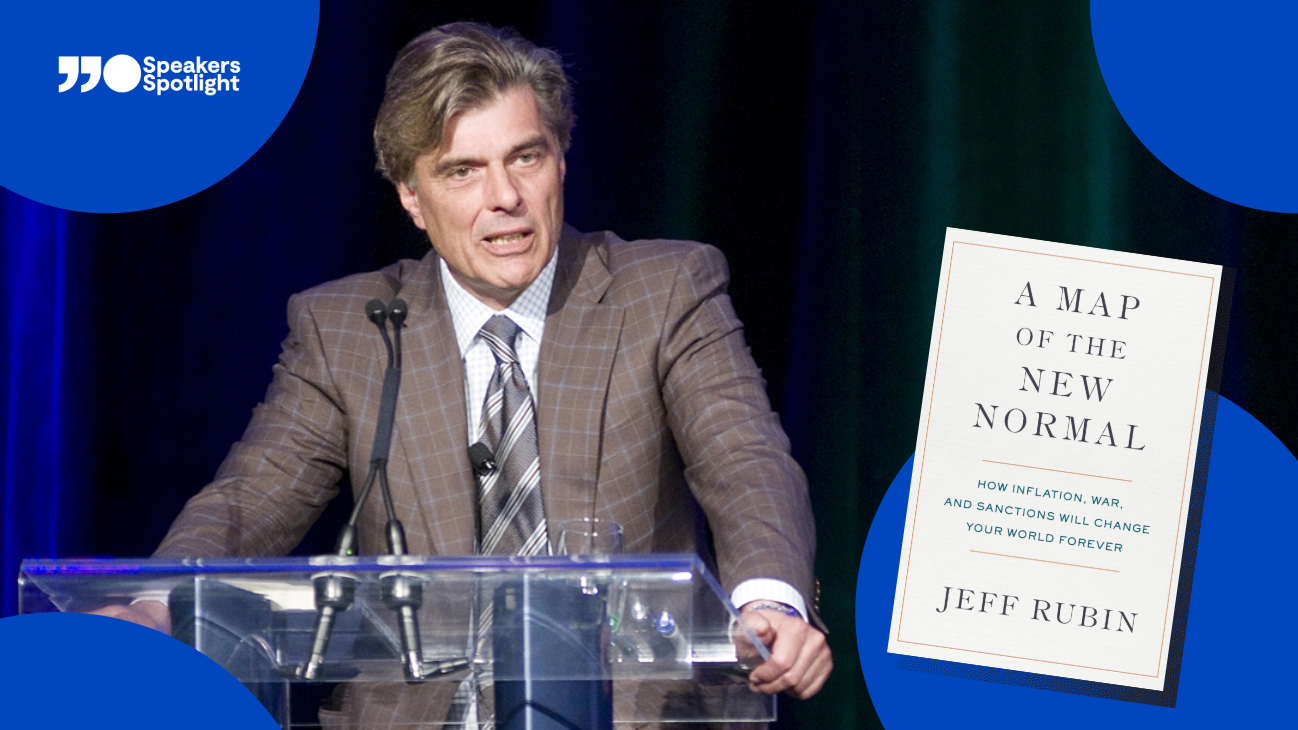Inflation was just the beginning. It’s the first symptom of a series of cascading upheavals — supply-chain disruption, geopolitical realignment, domestic upheaval, and energy scarcity — that will change everything, according to award-winning economist and bestselling author Jeff Rubin.
In his new book, The Map of the New Normal, Jeff gives readers a glimpse of a near future that will look very different from the recent past. Tracking trade wars and kinetic wars, central banks and runs on banks, pipelines blown up and startups knocked down, Jeff illustrates how our mortgage rates and job security, grocery bills and investments, are all tied to events set in motion by governments, corporations, and black swans around the world.
The Globe and Mail recently published an essay adapted from Jeff’s new book exploring the unintentional impact of trade sanctions and how they’re tipping the economic scales towards the east, “challenging the dominance of Western economic power on a scale not seen in a century,” Jeff writes.
Discover why below and contact us to learn more about Jeff — the former chief economist of CIBC World Markets who earned 10 citations as Canada’s top ranked financial market economist — and how his insights into “the new normal” can help your organization ready itself for the many changes ahead.
Why a “Normal” Economy is Never Coming Back
In the early 1960s, only 4% of countries were subject to economic sanctions imposed by the United States or the United Nations. Today, that number is 27%. This affects almost a third of global GDP, meaning sanctions will soon dictate the majority of trade, Jeff writes.
In other words, the world is engulfed in an ever-escalating global trade war, triggering ever-growing consequences for the Western economy, including:
1. The Rise of a New World Order
The increase in sanctions has made it evident that the United States and its NATO allies can no longer draw on their economic and military power to dictate terms to the rest of the world, Jeff writes. To get around sanctions, a growing number of countries in the developing world are joining a new economic alliance, BRICS, that includes China and Russia. As this membership grows, it lessens the impact of economic sanctions and takes away from Western economic power.
Nowhere is that more evident, Jeff writes, than the Russia-Ukraine war. Russia currently has 11 sanctions, all of which have failed to impact the Russian economy as it hits a new peak in GDP. Instead of isolating Russia, sanctions have only fractured the global economy into competing geopolitical blocs, he continues, and shredded the global trading order.
2. The Boomerang Effect
While Russia has lessened its dependence on Western markets due to sanctions and new friends, the same cannot be said about those who put the sanctions on Russia. “An even greater miscalculation by the Biden administration and its allies was ignoring how sanctions would boomerang back on their own economies,” Jeff writes.
This is most evident in the resurrection of inflation. Buried for more than four decades, the sanctions triggered their return.
“When you sanction shipments from the world’s largest exporter of energy and grain,” Jeff writes. “There are consequences for the prices of substitute supply. Soaring food and energy prices pushed inflation to levels not seen since the OPEC oil shocks. That in turn has forced a crippling rise in interest rates, as central banks such as the Federal Reserve Board and the Bank of Canada were reluctantly forced to respond by raising their target interest rates from near zero to the 5% range.”
The European Union (EU) has it even worse, as skyrocketing energy costs and soaring interest rates has put the entire EU economy in a recession.
3. Growing Global Competitors
While the short-term results of sanctions are bad enough, the long-term consequences are even more dire. Instead of forcing Russian consumers to go without Western goods, sanctions have created a vacuum for others to flourish. Not only do they replace the need for Western exports, Jeff said, they could eventually compete with Western companies on the global market. Sanctions have only created new commercial competitors amongst geopolitical rivals, he continued.
For countries who may lack the resources to meet the needs of their domestic markets, we’re seeing an uptick in “friendshoring”, which means trading with your political allies vs. geopolitical rivals.
“‘Decoupling’ or ‘derisking’ is another way of putting it — and its goal is nothing short of turning the very dynamic of international trade (comparative advantage) on its head,” Jeff writes. It may make supply chains more secure in a world of economic warfare, but when your allies are fellow high-wage economies, it means things are about to get a lot more expensive, especially for Western consumers who have grown accustomed to products made by cheap labour.
In the new normal, Jeff concludes, “no longer will trade be driven by economic imperatives. Instead, international trade will be driven by geopolitical considerations.” A new normal, he continues, that will be a lot less efficient and a lot more expensive than we’re used to.
Jeff Rubin is an award-winning economist and the bestselling author of several books including the international bestseller, Why Your World is About the Get a Whole Lot Smaller. He spent two decades as the chief economist at CIBC World Markets and was one of the first economists in the world to predict triple digit oil prices back in 2005.
With his insights having been published on the front pages of the New York Times and the Wall Street Journal, and in several high-profile publications including Newsweek and The Economist, Jeff helps prepare organizations for a future dramatically different than what came before it.
Contact us to learn more about Jeff and to book him for your next event.




